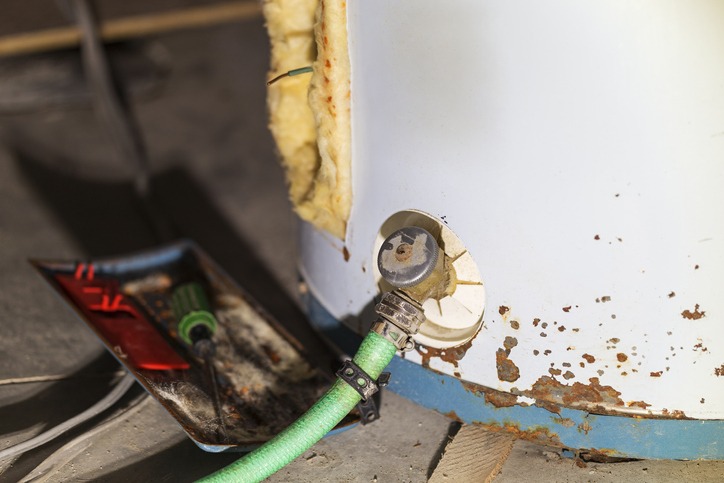Water heaters play a critical role our lives, ensuring that faucets, showerheads, and water-using appliances produce warm or hot water when needed. And like any large home appliance, they need regular maintenance in order to operate properly, efficiently, and safely.
Although it’s extremely rare, there have been some cases of water heaters exploding over the years. So, the short answer is “yes”, it is possible for a water heater to explode. However, a water heater installed by a professional should have almost no risk of explosion.
Still, it’s a good idea to know what can put a water heater at risk for an explosion and what signs to look for that indicate yours needs prompt attention.
What Can Cause a Water Heater Explode?
Traditional tank-style water heater explode if the temperature and pressure in the tank build up to dangerous levels. This can be caused by a malfunctioning T&P valve, the accumulation of sediment inside the tank, or a malfunctioning thermostat that fails to regulate the water temperature correctly.
While tank water heaters have a higher risk of exploding, tankless models are not completely without risks, as any malfunctioning heating equipment can be dangerous.

Warning Signs
Even though an explosion is unlikely, it’s important to keep an eye out for signs that trouble could be brewing. If you notice any of the following, contact a professional right away to inspect the unit:
Gas Leak:
One of the most obvious signs of a problem is if there is a rotten egg or sulfur-like smell indicating a potential gas leak, which can cause carbon monoxide poisoning. What’s more, should gas escape from a water heater and meet a spark or flame, it can create an explosion. If you suspect a gas leak, leave the house immediately and call your gas company’s emergency line from a safe location.
Leaking T&P Relief Valve:
The T&P relief valve releases excess pressure to prevent it from building up in the tank. If the valve is broken or leaking more than usual, it should be replaced immediately.
T&P Valve Constantly Open:
A properly functioning T&P valve should open periodically to release excess water. However, if it remains open, it’s either broken or under excessive pressure. Have it inspected immediately.
Unusual Noises:
Over time, minerals such as calcium and magnesium can build up at the bottom of the water heater tank, increasing pressure and resulting in popping noises. The best way to avoid this is to drain the tank at least once a year a year.
Brown Water:
If you notice brown or discolored water from a hot water faucet, it may mean that the metal tank is starting to rust and corrode as a result of excess minerals in the water. A corroding tank is at risk for ruptures, leaks, and even explosions. Contact a professional to inspect your water heater right away.
Shaking:
Sediment can accumulate in the bottom of a water heater tank causing the appliance to work harder to heat water to a desired temperature. This can lead to extra heat in the tank, which can boil the water and cause the tank to shake or rumble. If this happens, it can cause the pressure inside the tank to rise and degrade the tank.
Importance of Water Heater Maintenance
To minimize and even prevent water heater problems, regular maintenance is key. Experts recommend having a water heater inspected once a year by a professional to reduce the risk of accidents and
maintain proper operation of your hot water system. If you can’t remember the last time this important service was performed on your water heater
contact Eagle Service Company today. We service and repair all makes and models of gas, electric, and tankless systems – including yours.


